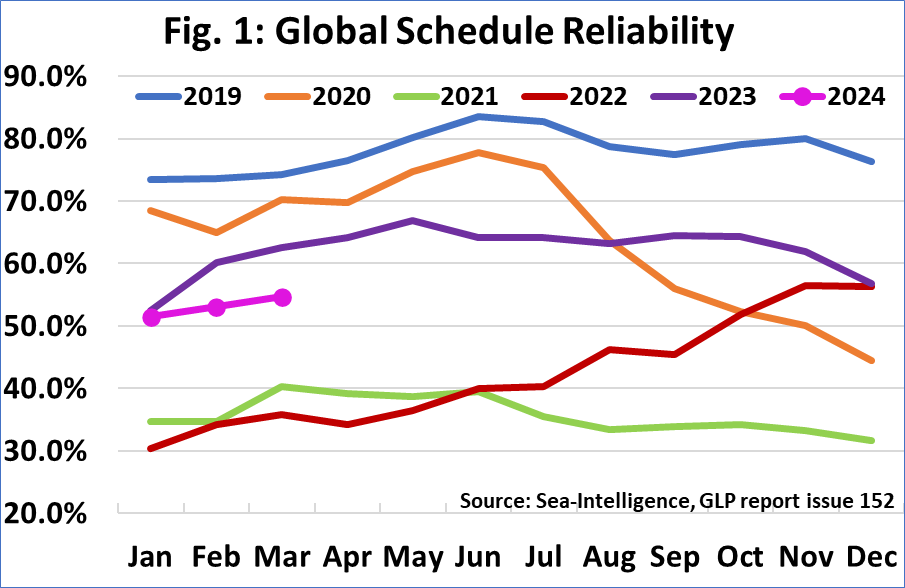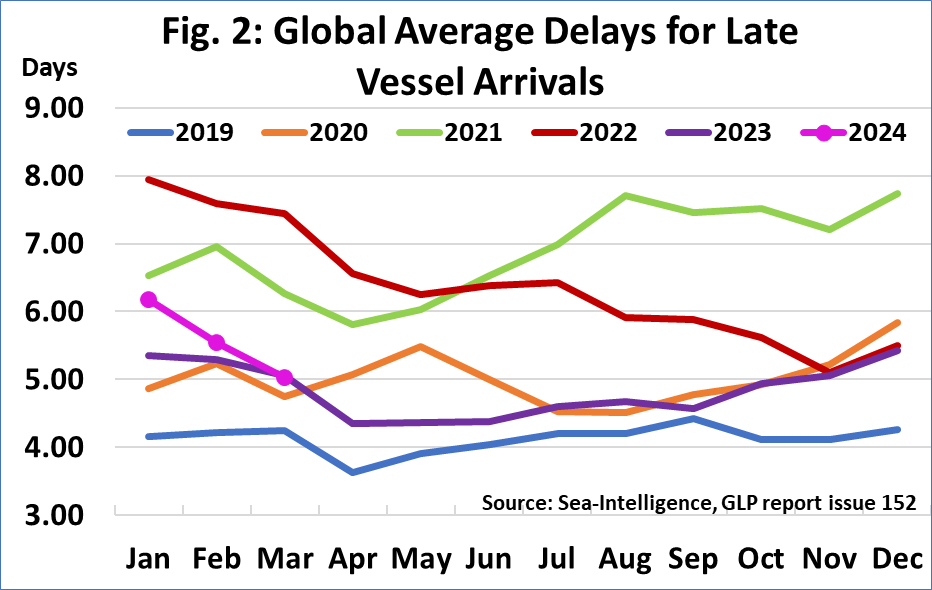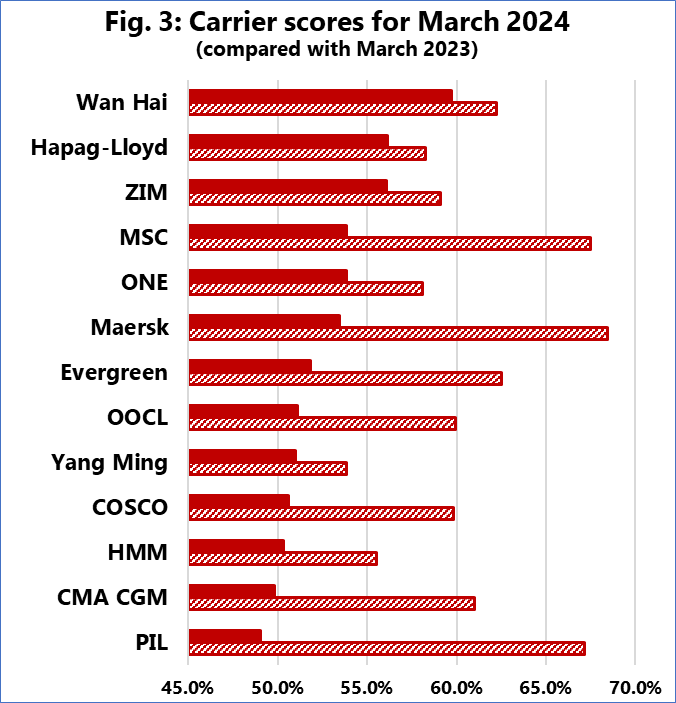Shipping schedule reliability has started to improve, according to a new Sea-Intelligence report, as the round-Africa routings normalise and carrier's service networks stabilise.
Schedule reliability in March 2024 improved by 1.6 percentage points month-on-month (M/M) to 54.6%, but the maritime intelligence provider noted that reliability is still not on par with pre-crisis.

On a year-on-year (Y/Y) level, schedule reliability in March 2024 was down by -7.9 percentage points.
Meanwhile, the average delay for late vessel arrivals decreased by -0.52 days M/M to 5.03 days, improving marginally over the pre-crisis figure of November 2024.

Wan Hai most reliable carrier in March
Sea Intelligence said Wan Hai was the most reliable top-13 carrier in March, with schedule reliability of 59.7%.
The Taiwanese shipping company was followed by Hapag-Lloyd and ZIM, with schedule reliability of 56.1% each.
"There were another 8 carriers above the 50% mark," the report said.

It added that PIL was the least reliable carrier, with schedule reliability of 49.0%.
Sea-Intelligence said 11 of the top 13 were able to record an M/M improvement in schedule reliability in March 2024, with Wan Hai recording the largest improvement of 11.1 percentage points.
The report added that CMA CGM recorded the largest decline of -1.8 percentage points.
On a Y/Y level, none of the 13 carriers recorded an increase in schedule reliability, with PIL recording the largest decline of -18.1 percentage points.